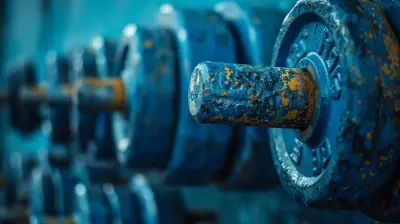How Referees Prepare for Big Matches: Strategies and Mindset
5 November 2025
Let’s be honest—when we think about big matches, we usually picture the star players, the screaming fans, and the high-stakes scoreboard. But there’s another key player we often overlook: the referee. These folks aren’t just blowing whistles and flashing cards; they’re running the show. And just like athletes, they also have to be at the top of their game—physically, mentally, and emotionally.
So, how exactly do referees prepare for big matches? It’s a combination of strategy, psychology, physical prep, and nerves of steel. Whether it's the World Cup final, the Super Bowl, or a Champions League clash, the pressure is real. Let's dig into the behind-the-scenes world of referee preparation.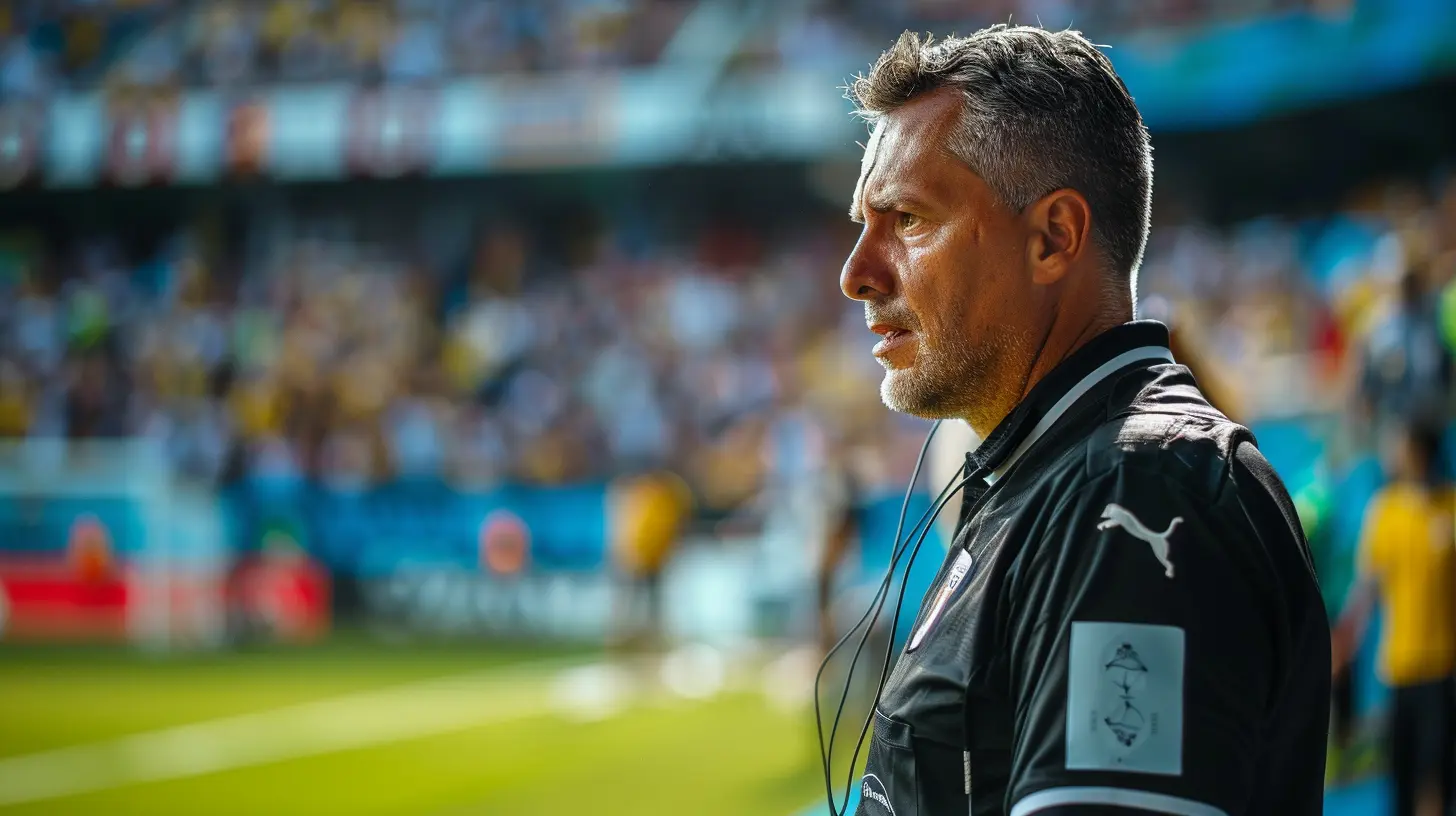
Table of Contents
1. Why Referee Preparation Matters2. The Physical Side: Training and Fitness
3. Mental Fitness: Building the Right Mindset
4. Studying the Teams and Game Dynamics
5. Pre-Match Routines and Rituals
6. Communication is Key
7. Handling Pressure and Making Tough Calls
8. Technology and VAR: A Modern Twist
9. Post-Match Reflection and Continuous Improvement
10. Conclusion: The Unsung Heroes of the Game
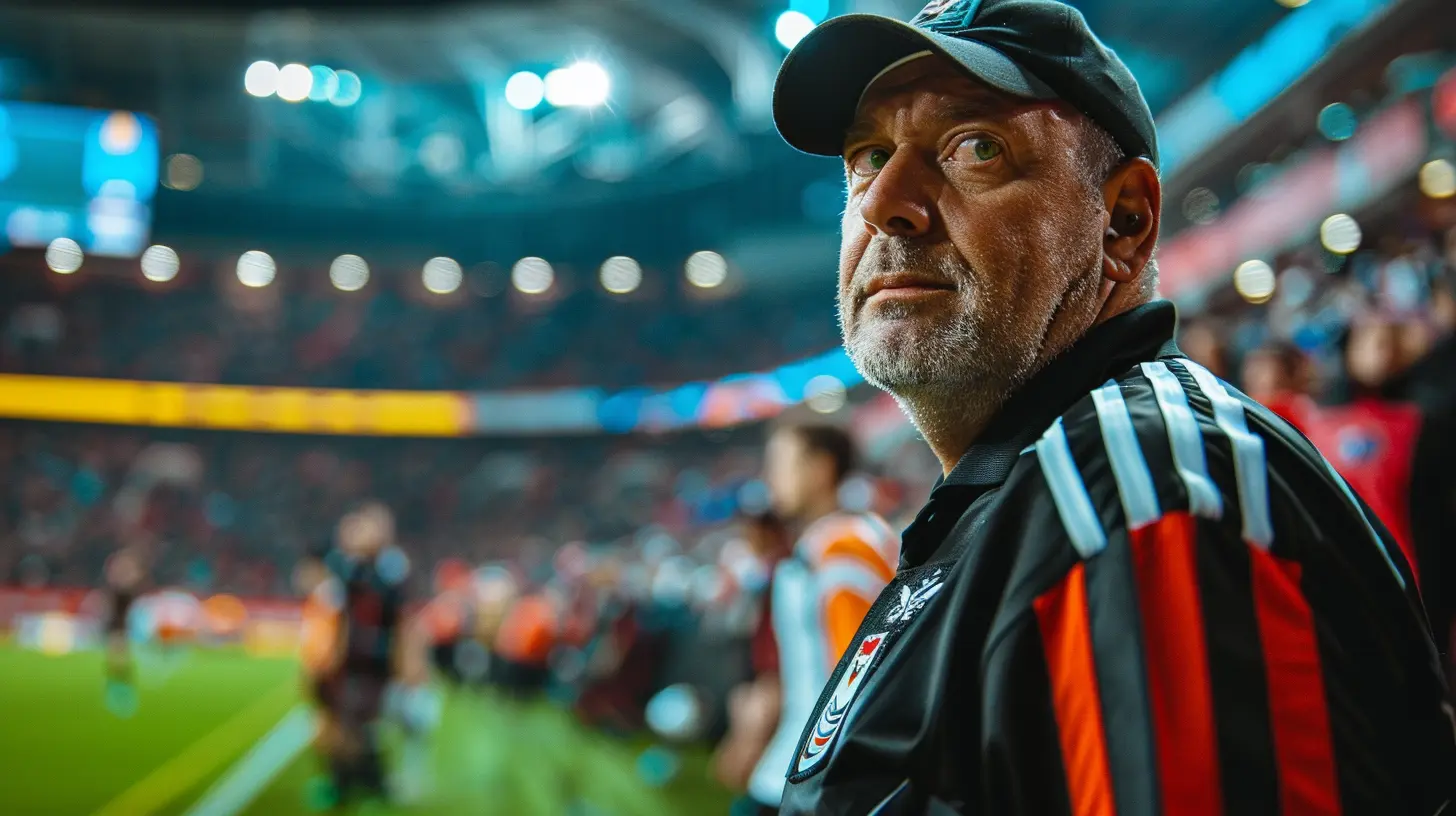
Why Referee Preparation Matters
Ever seen a match spiraling out of control because of poor officiating? It’s not pretty. When refs are underprepared, the whole game can suffer. Fans get angry, players lose their cool, and the integrity of the sport is at risk.Refereeing a major match isn’t just about knowing the rules—it’s about managing egos, keeping up with world-class athletes, making split-second decisions, and holding your ground when a whole stadium is yelling at you. That’s a tall order.
Preparation ensures consistency, confidence, and control. It’s what turns a good referee into a great one.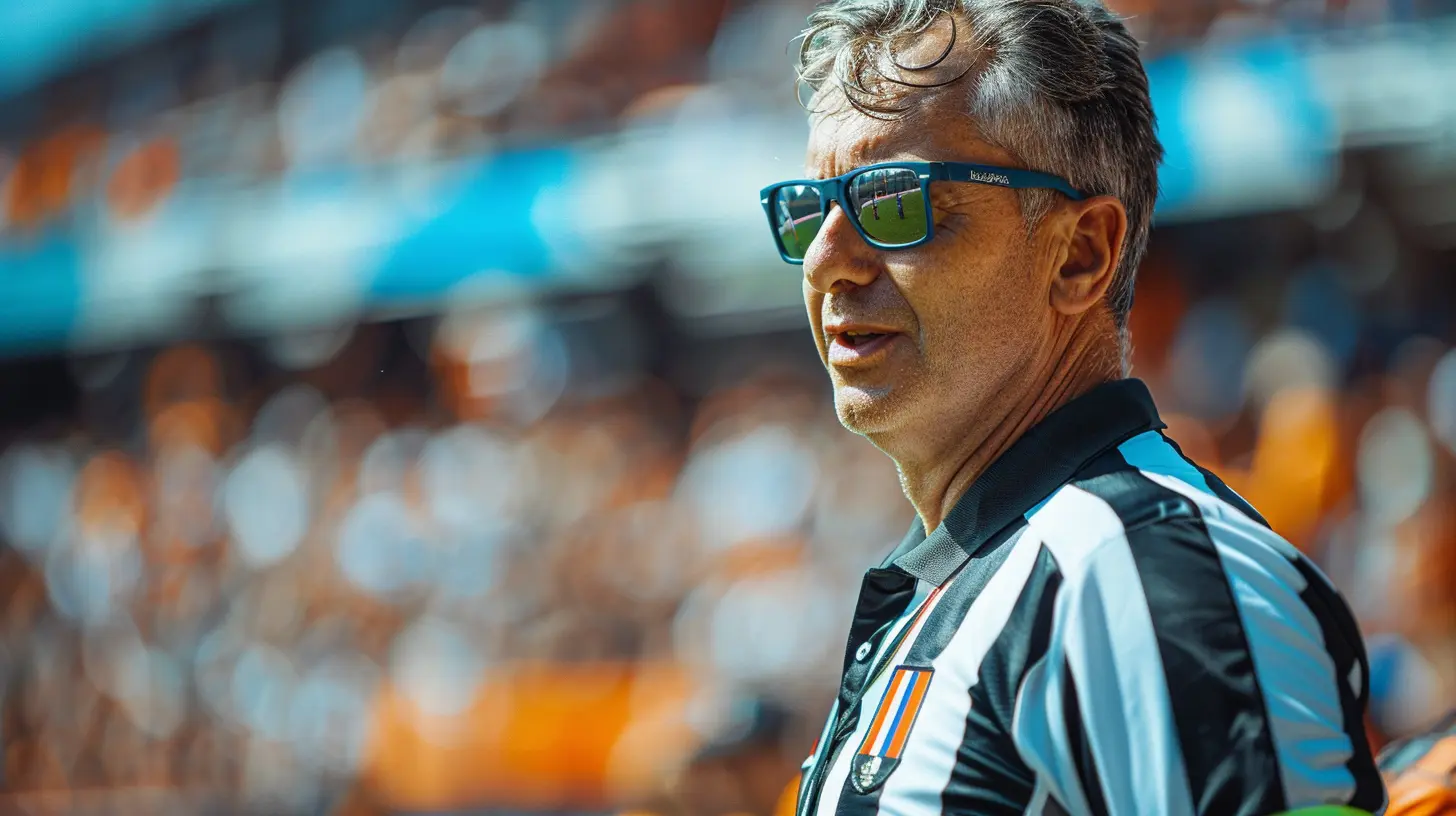
The Physical Side: Training and Fitness
You might not think of referees as athletes, but guess what? They absolutely are.In top-tier matches, referees often run 6 to 8 miles per game, sometimes more. They need to be in peak physical condition to keep up with elite players. You’ll find refs doing interval training, endurance drills, and agility workouts. It's like boot camp—but with whistles.
They also need sharp reaction times and explosive sprints to stay in position for those tight offsides or fast breakaways. And let's not forget about injury prevention. A muscular strain mid-match could be disastrous, so strength training and flexibility are non-negotiables.
Many professional referees follow customized fitness programs, often monitored by sports scientists and fitness coaches. Nutrition and recovery? Yep, that’s in the mix too.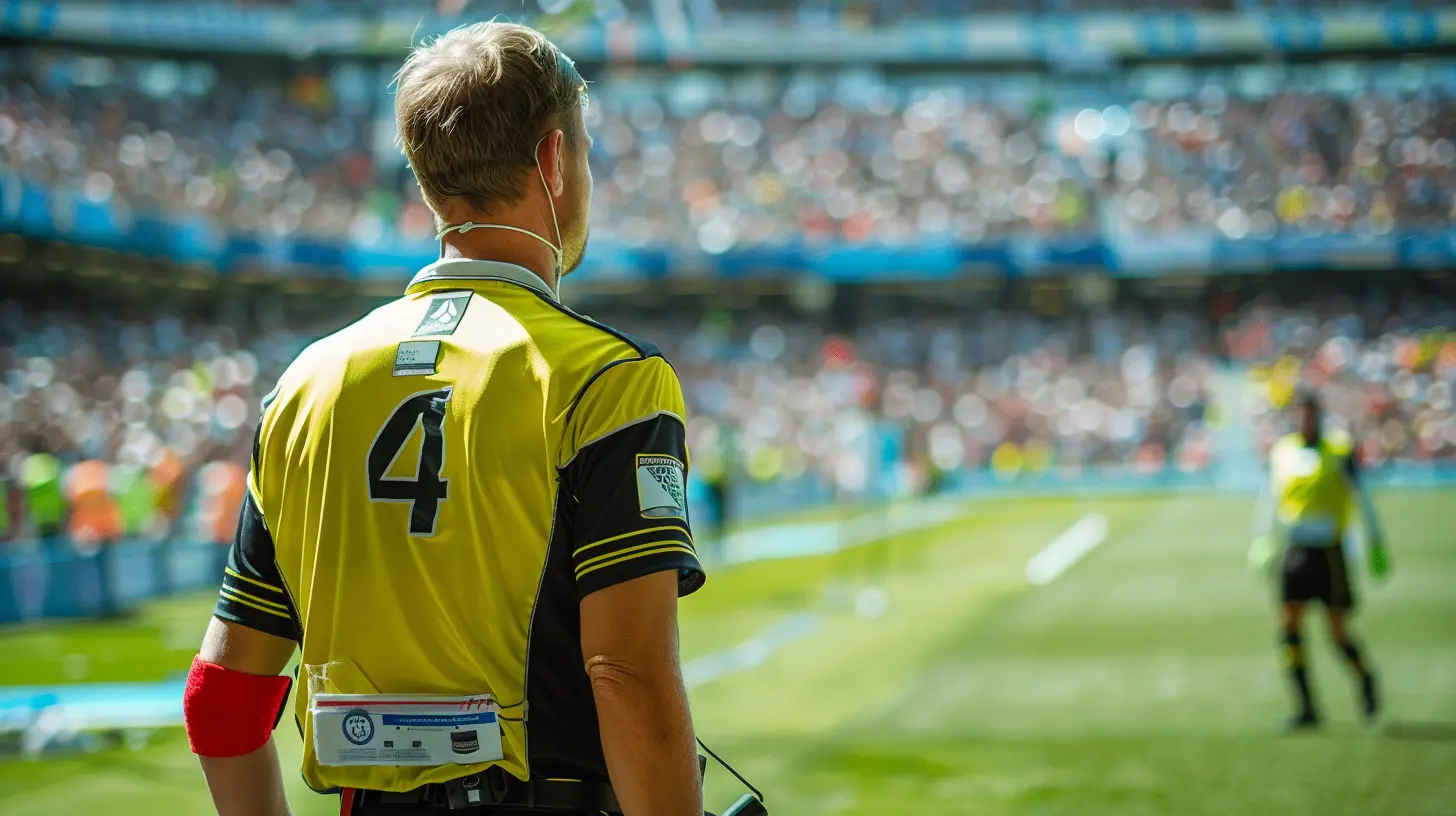
Mental Fitness: Building the Right Mindset
Here’s where things get real.Physical prep is essential, but mental toughness is where elite referees truly shine. A big match brings massive pressure—millions of eyes, unpredictable moments, and no room for error. One wrong call and you’re trending for all the wrong reasons on Twitter.
So how do referees mentally prepare?
Visualization
Many referees use visualization techniques. They mentally walk through different match scenarios, imagine dealing with aggressive players, or envision dealing with high-pressure penalty appeals. It’s all about training the brain to stay calm and focused.Mindfulness and Meditation
Referees also practice mindfulness to improve focus and stay present. When tension rises on the pitch, they need to maintain laser-like sharpness. Breathing exercises and meditation help calm nerves and clear mental fog.Confidence Building
Confidence is key. And it's not about ego—it's about trusting your instincts and your prep. Refs review past performances, highlight what went well, and learn from mistakes without letting them crush their morale.Studying the Teams and Game Dynamics
Just like coaches, referees watch game footage leading up to the match. Why? Knowledge is power.They study each team’s style of play, player tendencies, and even individual hotheads known for pushing limits. Knowing how teams attack or defend helps referees anticipate play patterns.
For example, a team known for quick counters might require the referee to stay extra vigilant on positioning. Or if there's a history of bad blood between two teams, the referee might need to tighten discipline early.
They also take note of tactical fouls, time-wasting habits, and strategies used in previous games. This prep helps them be proactive rather than reactive.
Pre-Match Routines and Rituals
Ever seen a player tie their boots a certain way? Referees have similar rituals.Most referees have their own pre-match routines to get into the zone. This could involve reviewing notes, listening to music, meditating, or going through warm-up routines with their assistant referees.
Mornings are often kept light with low-stress activities to preserve energy and focus. Meals are planned carefully—nothing too heavy, but enough fuel to last 90+ minutes of intense activity.
They also sync up with their referee team—main ref, assistants, fourth official, and VAR team. Clarity in roles, signals, and expectations is crucial before the whistle blows.
Communication is Key
A referee is only as good as their team. That includes assistant refs and now, in many cases, the video assistant referee (VAR).Before big matches, the entire officiating team meets to discuss communication strategies. They decide on hand signals, talk through likely scenarios, and agree on how to handle certain incidents—like potential red cards or contentious goals.
During the game, sharp, clear communication can prevent chaos. Whether it’s a quiet word with a player to defuse tension or a quick nod to an assistant to confirm a call, the right words at the right time make all the difference.
Handling Pressure and Making Tough Calls
Here’s the brutal truth: No matter how prepared you are, you’re going to face tough calls.Think handballs in the box, offside goals, or last-minute fouls. These are game-changing decisions, and you might only have a second to call it. And the crowd? They’re not exactly whispering sweet nothings in your ear.
Referees rely on training, instincts, and their support system. They focus on clarity over perfection. The goal isn’t to be infallible—it’s to make the best possible decision with the info at hand.
And when the pressure hits? Refs breathe, block out the noise, and remember why they’re there: to keep the game fair and flowing.
Technology and VAR: A Modern Twist
Love it or hate it—technology is now a part of refereeing.For big matches, VAR (Video Assistant Referee) is a key element. And believe it or not, using VAR isn’t as simple as just replaying footage.
Referees prep for how and when to use VAR. They learn protocols, timing, and communication techniques. The last thing anyone wants is a five-minute delay because the VAR team can’t explain what’s going on.
Referees also train on when NOT to use technology—because sometimes, the call on the field has to stand.
It’s a delicate dance between old-school instincts and new-age tools.
Post-Match Reflection and Continuous Improvement
After the match, while players head off to celebrate or sulk, referees get to work again.Post-match analysis is a regular routine. They watch footage, evaluate decisions, and review feedback from referee assessors. It’s not about punishment—it’s about growth.
They may take note of moments where positioning could be better, where tempers got out of hand, or where communication faltered. This feedback loop helps referees stay sharp for the next big assignment.
Professional referees also attend monthly workshops, online seminars, and even group discussions to stay on top of rule changes and best practices.
Conclusion: The Unsung Heroes of the Game
Referees may not score goals or lift trophies, but without them, there’s no game. Preparing for a big match is like preparing for battle—physically, mentally, and emotionally. From training routines and pre-game rituals to pressure-handling and hi-tech support, referees put in the work so the rest of us can enjoy the spectacle.So next time you're tempted to scream at the ref, pause for a second. They're out there giving it everything they've got—just like the players, maybe even more.
all images in this post were generated using AI tools
Category:
RefereeingAuthor:

Umberto Flores
Discussion
rate this article
1 comments
Cruz Hahn
Oh sure, because we all know that the secret to a flawless game lies in a referee’s yoga routine and caffeine intake. Who needs player strategies when you can master the art of blowing whistles at just the right moment? Truly, the real MVPs of the game!
November 15, 2025 at 1:01 PM

Umberto Flores
While it may seem humorous, a referee's preparation, including their physical and mental conditioning, plays a crucial role in maintaining fairness and flow in the game. It's about much more than just the whistle!
